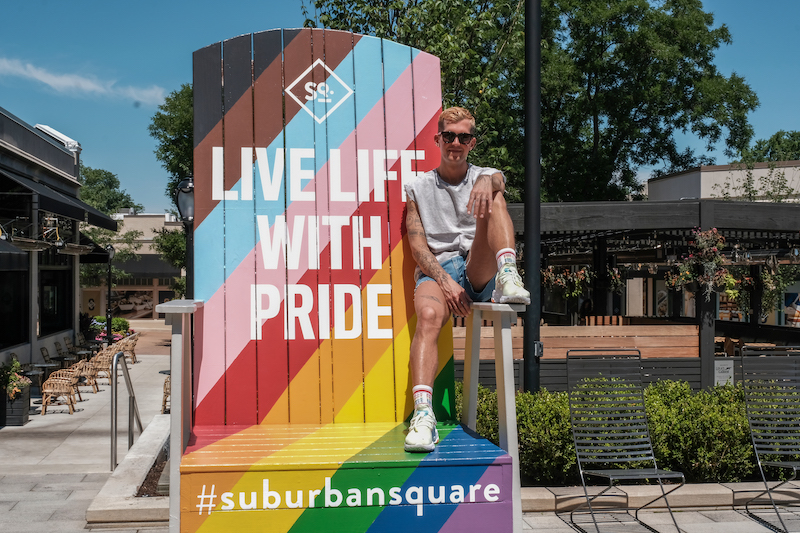
Ryan Lewis in the courtyard of Ardmore’s Suburban Square during Pride month. Photo by Mike Wroblewski/OnUpMedia
The Main Line teems with talented trainers.
But we’ve found no one (yet) who brings as much of himself to the table and inspires a more rabid following than SoulCycle Master Instructor Ryan Lewis.
It goes way deeper than his jammed classes, his Instagram eye candy and legendary Taylor Swift rides.
Twenty-three times a week – 16 classes at Soul in Ardmore and Center City, seven more at Barry’s Bootcamp – Ryan empties himself fully, baring all, daring all. Lay it all out, I’ll pull you out, I’ll lift you up. We’re in this together.
St. Joe’s Prep alums may recall Ryan as the skinny theater kid who came out to 50 male classmates at Kairos, a religious retreat, the summer after junior year – long before the chiseled physique, the 30 tattoos and the substance abuse that nearly short-circuited his kinetic career.
Now wise beyond his 30 years, Ryan bestrides the Soul stage like a bleached blonde Colossus, swaying, clapping, preaching, prodding. It’s show time.
A born performer, he hits the high notes, finds for the right words. The sweat pours forth like baptismal water, washing over Ryan first, then the faithful, offering forgiveness, redemption, a measure of salvation even.
“He taps into our hearts and minds, [stuff] that many of us try to shut out but most would benefit from facing head-on,” says rider Kristen Mikelonis. “He helped me to understand it’s OK to ask for help, to embrace who I am as a person and not be apologetic for it. He’s brought out so much good in me.”
For his acolytes, riding with Ryan is religion. It’s like going to church.
You’re cycling for your very soul.
Ryan certainly is.
Ryan believes there are three kinds of SoulCycle instructors: the dance-party choreographer, the push-your-limits athletic trainer, and Oprah.
“I play between the last two … A friend once told me a breakdown can be looked at as a breaking open. When you’re broken down to a pulp physically, you’re more vulnerable and open to change. You’re starting from ground level.”
The trainer in him levels you, he says, and “the smooth stylings of Supersoul Oprah pull you back up. That’s how I like to approach it.”
Sure, his chosen AOL screen name back in the day was Future Broadway Star but this isn’t hot-dogging. It’s not play acting.
His performance is rooted in truth.
Regular riders know he’s in recovery. They know he’s found love this year.
As he works his body, brutally, impossibly, he’s working on his own headspace.
Just like you are.
“In the beginning of class, you might be the worst version of yourself – some days you can’t help it – but then hopefully, there’s a transition to the other side on the end of it, or at least an improvement.”
Tracing the source of Ryan’s contagion – his fever for cycling, for fitness, for connecting – that churning stew of empathy, humility and Pride, starts with middle school.
“In those days, I was always picked last and cut first, dejected and everything,” he says, grinning at the memory.
Energy he always had. Hand-eye coordination, not so much.
When he was 13, his mother gave up on sports camps and took Ryan to an indoor cycling class – at LA Fitness in Montgomeryville. “You clip in, you move your legs. There’s no way you can screw this up,” she told her son.
“I fell in love immediately,” he recalls. He’d vow to “be a runner” one year and a stud power lifter the next, but he’d always return to cycling.
When he came out to his classmates at the Prep, he felt unburdened, buoyant, but no one was surprised. We’ve all been waiting, they told him. We knew this was eating you alive.
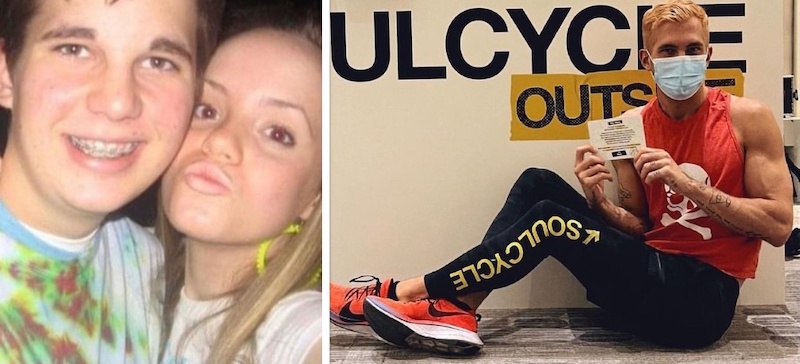
Ryan during his St. Joe’s Prep days at a Click Five concert at the TLA with pal Kim Whitehill and (right) in late May, holding one of the notes he left on riders’ bikes to thank them for coming back to SoulCycle when it re-opened in Rittenhouse Square.
The big retreat speech that he feared might be life-altering had changed almost nothing. No one treated him differently. Ryan will tell you only that he feels fortunate to be gay “in this part of the country” and to have revealed himself in a welcoming place like the Prep. “I liked the Prep my freshman, sophomore and junior year. I loved the Prep my senior year.”
He went on to major in marketing at NYU’s estimable Stern School of Business. “There’s no better place than New York for a young, gay person.”
He’d heard about SoulCycle but steered clear, knowing he couldn’t afford it. Entrenched in the party scene, Ryan says he was already spending “a lot of money on the good and bad stuff that goes with it,” including escalating drug and alcohol use.
His mom insisted on taking him to SoulCycle in NYC to celebrate his NYU graduation, and, as feared, he fell hard. By then he’d taken a job in brand management at Pepsi, staying on in the city and commuting to Purchase, NY.
The first week he tried Soul was the first week he tried to get clean.
Instead of partying, he’d begun pedaling through eight or nine classes a week. Soul was his “transfer addiction,” not uncommon in recovery. It filled the void. His friends thought he was saving money staying home. Not quite, he’d tell them. The money’s just going elsewhere.
Three months into riding, an instructor pulled him aside and asked if he’d ever thought about auditioning.
Of course he had. From the very first class.
Ryan started bargaining with himself. Maybe he could work part-time at Soul and stay on at Pepsi.
One night he thought he “could just drink and get away with it.” But “I fell immediately back to everything else … I was a fully functioning alcoholic and drug addict,” juggling the Pepsi job by day, partying by night.
After five months, he wasn’t even feeling high any more. He’d heard of people whose bodies “stopped processing drugs so they turn to something harder.” Ryan took it as a sign. His then-boyfriend called Ryan’s parents. Your son needs help, he told them.
His mom flew up from Florida without a return ticket. Together they found an outpatient recovery program in Chelsea. For 12 weeks, Ryan worked at Pepsi from 5:30 a.m. until 4 p.m., then drove back to the city for rehab from 6 to 9. Whenever he could, he squeezed in SoulCycle classes with Akin Akman, the celebrity trainer/master motivator who went on to found Akin’s AARMY. “Akin helped me pick myself up and believe in pretty much anything.”
Ryan had always enjoyed the people at Pepsi but started questioning his path.
He’d look at his fellow brand managers and think: None of you consume this. None of you are drinking gallons of Mountain Dew, yet you’re fighting to the death to have your brand be on top. He knew he was good at marketing, but how much better would he be if he actually believed in the brand he was selling? Every time he took a SoulCycle class he’d think: When is it my turn?
“I woke up one day – to use a phrase you hear in meetings, sick and tired of being sick and tired.” He knew Soul was everything he loved: exercise, music, performance, a community. He auditioned and nailed a job on the first try. Most hopefuls have to try out three or four times.
After a short stint in Chicago, Soul brought him back to Philly in 2016 to open the Ardmore studio, the brand’s first in the Philly area. “I was a brunette and had twig arms and probably 30 less tattoos. A lot can change,” he says, grinning. His first-ever visit to Suburban Square was two days before Soul opened.
From the beginning, he made his classes a safe space where story was shared and struggle was honored. He’d start each with a spoken message, an intention, reinforced by a killer playlist.
He started telling stories about himself before class, during class, during stretch. And people started opening up to him. “I have no answers,” says Ryan, who once thought about becoming a psychologist. “I only have my life experience and how I arrived at the choices I’ve made.”
Hang with him and you want to be him. Or maybe just adopt his attitude. What’s his MO? What can Ryan teach us about daily living? We can’t all ride with him, so we thought it would be fun to peek under his hood with this very short video.
Ask Ryan how he built his brand – his 8,000 Instagram believers, invitations to rep Lululemon and other brands he believes in, his insanely popular theme weeks and charity rides, including one at Lincoln Financial Field that raised $17,000 for the Eagles Autism Foundation last summer – and he circles back to honesty. Ryan and his brand are one: authentic, vulnerable, empathetic.
“He simply knows what to say and when to say it and it always sounds natural and never like he has to try,” says regular Ardmore rider Rachel Stein. “I’m 43 years old and I feel like a teenager around him… he’s my fountain of youth.” His Ardmore co-workers tell us he never breezes in like a bigshot but always takes time to ask each of them how their days are going and actually listens to their answers.

Ryan Lewis with the two pals, Alyson Leonard and Claire Griffin, who helped him stage a cycling fundraiser at the Linc last August. With the OK of Eagles President Don Smolenski, a regular rider at Ardmore Soul, Ryan led three classes in a then-empty Linc parking lot, raising $17,000 for the Eagles Autism Foundation. “I’ve never felt more accomplished or fulfilled,” Ryan says.
Ryan’s not shy about his body either. He’ll gladly pull up his shirt and take you on a tour of his tattoos – mantras like “Always Rooted in Gratitude,” his sober anniversary date inside a finger, the first song he heard on his 90th day clean (“Do or Die” by Thirty Seconds to Mars) splayed across his back.
And those compelling Insta pics and videos don’t just happen. He schedules regular shoots with his media/content partner and pal Allyson Leonard.
At a time when the fitness industry tries to focus on how you feel instead of how you look, Ryan celebrates both. “I know there’s a shallow element. But I teach 23 classes a week; I like to have something to show for it.”
He’s also remarkably disciplined, rising daily at 4:15. Who does that when they’re 30?
“Before the world turns on, you get to be by yourself and figure out what your day’s going to be like.” Until recently, he’d post his reflections to his Instagram story every day. “It became something people would turn to … That’s when things started to take off for me.”
The COVID shutdown abruptly brought him back to earth, a crash landing. “It was the worst breakup I’ve been through,” Ryan recalls.
Technically, he was only without a paycheck for a month but he felt unmoored. He’d lost his footing, his place and purpose.
In the early months, he hopped online like other fitness pros, launching Your Ryde Home videos and audio tracks, donating 30 percent of subscription sales to various charities.
It was a big success – he raised thousands – but the process left him drained. Pre-pandemic, he’d been teaching 21 classes a week. Taping just six weekly made him “exponentially more tired. I was just giving energy and receiving nothing back because I was doing it to nobody.”
He battled self-doubt. Did he pick the right career? Would he ever get back to teaching in person? Would people even come back? Ever the empath, he knew how depleted he felt and worried about “how people were feeling at home, doing it by themselves.”
Ryan also passed part of the pandemic co-hosting “The Sad Beautiful Tragic Podcast,” a deep dive into albums by his favorite artist (and it isn’t even close), Taylor Swift.
“She’s an all-her-cards-on-the-table kind of gal and I love that,” he says, clearly smitten. “Every album depicts a universal feeling that no one has put in words before. Anyone with such a high EQ is speaking my language.”
For years Ryan had noticed a shift when he played Swift in his classes. “People would start singing along. You would see faces light up.” Before long, he was hosting Swift theme weeks that sold out as fast as her concert tours. Naturally, it was Swift whom Ryan blasted at the Linc that August Saturday.
Ryan has never managed to meet the pop star, although he admits, sheepishly, to messaging her “quite a few times”on Instagram. (Note to Swifties with connections: Ryan would kill for a backstage pass next time she’s here on tour.)
Ten months after the Linc, Ryan sits tall in the Soul saddle once more. The classes he led for months in the Suburban Square’s garage – the erratic temps, the harsh florescent lights – have faded, a bittersweet memory.
His classes are full-strength again, his body is as taut as ever, and his mind is even sharper from the part-time MBA program he just started at Temple. He knows he can’t ride this hard forever so he’s working on Plan B: joining the c-suite at SoulCycle or Barry’s Boot Camp. He knows he can effectively lead either because he believes in both.
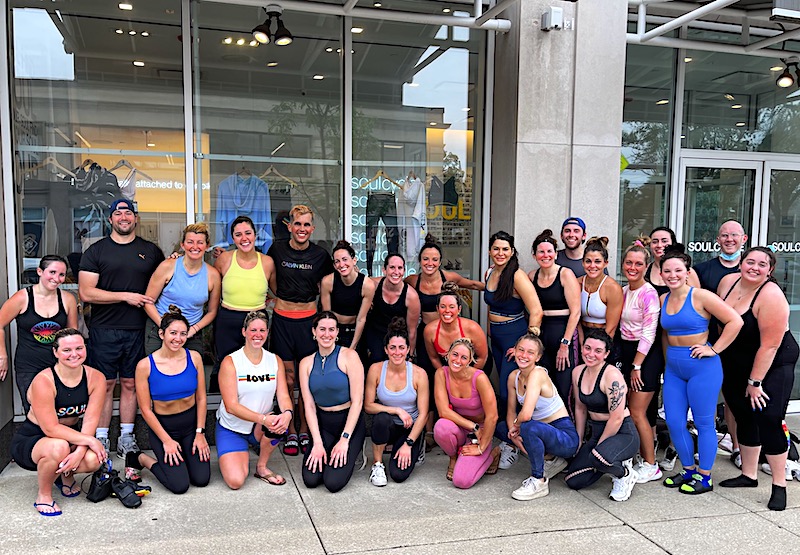
Ryan & crew after class on the first day Ardmore cyclers were allowed to ditch their masks. Ryan called it “the 15-month exhale ride.”
In the studio, he hugs again; he high-fives again.
Unmasked, unashamed and juiced only on endorphins, he peddles joyfully to nowhere, belting out Demi Lovato with the faithful.
His first 30 years – especially this last one – have been one wild ride.
But he’s back, he’s strong, he’s where he belongs.
He’s home.
One on one with Berwyn’s Brad Inglesby, creator of Mare of Easttown
It’s been a month since its shattering finale and we still can’t get Mare of Easttown out of our heads. You, too?
Never mind that there’s almost no Easttown in the show, we still took it personally. It rang true. Many of us – yours truly among them – grew up in Delco.
We knew that accent (and sometimes slip back into it).
We drank those Rolling Rocks.
We had cousins who were priests.
The finale tied up the mystery but, for us, begged more questions. So we went right to the source, to the man who created Mare Sheehan before Kate Winslet embodied her: Berwyn-raised, Archbishop Carroll- and Villanova-educated screenwriter Brad Ingelsby.
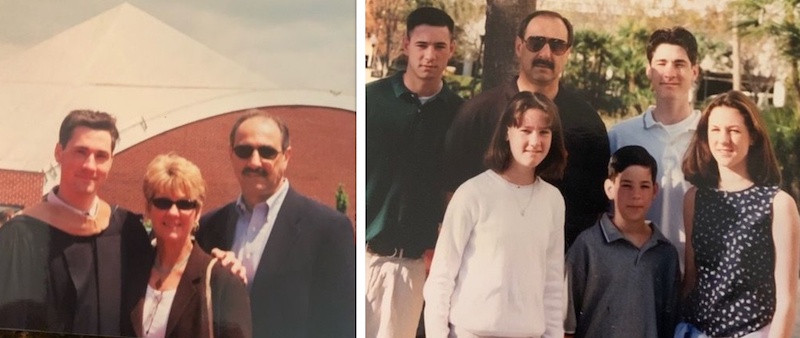
Ingelsby with his parents, Rose and Tom, at his Villanova graduation in 2002 and (at right) with his dad and siblings. (Back row from left) Martin, his father Tom, Brad, (front row) Colleen, Tommy and Chrissi.
He wrote all seven episodes in eight months and as showrunner and executive producer, he was on set every day. If Mare is anyone’s baby, she’s Ingelsby’s.
Here’s our phone chat, edited for brevity:
Did you ever think the show would be such a monster hit?
We were surprised. You get to a certain place in the process where you just don’t know. You’ve seen every scene a million times, you’re over its jokes and surprises. You’re so wrapped in the material, you’re immune to its charms. You just say, “Hey, let’s get it out in the world and see what happens.”
You grew up on the Main Line – in Easttown, Chester County, but you put Mare in Delco – it’s practically a character on the show. How did you come to know Delco so well?
I’ve spent a lot of time there. My parents were from Springfield. Growing up, we would go to my grandmother’s house in Drexel Hill at least once a week to have dinner with my mom, her sisters and all the cousins. My wife was born and raised in Aston. When we go home, we stay in Aston. I’d also say, in terms of the working-class ideal of the show – we were raised a certain way. It was instilled in us. My dad was fairly successful as an insurance salesman but he didn’t come from money. We never had the sense that we had any. There was a country club up the street but we worked there. We would caddy for our friends’ parents. I always felt close to my blue-collar roots and I’ve always been drawn to characters who exist in that world.
In the show, Siobhan’s new girlfriend goes to Haverford College – a Main Line reference! Is there anything else Main Line about the show?
I called It Easttown because I grew up there and I wanted it to be about home. Also, some of the people were inspired by people I grew up with. Easttown to me was a name that was generic and yet specific. It was a composite of places like Aston, Drexel Hill and Coatesville.
Were any of your former Berwyn neighbors or Main Line friends disappointed that the show wasn’t about the real Easttown?
I did a talk at Easttown Library and a few people were disappointed that I wasn’t doing any shooting in Easttown. I probably should have changed the name to something else. The actual Easttown is way different from the Easttown on the show. We really wanted to portray a blue-collar community. I don’t think the real Easttown would have suited that story.

(Left) Brad Ingelsby with assistant Nicole Jordan-Webber during filming of a scene at “Easttown High School” in episode 3, and (at right) on the Mare soundstage at Sun Center Studios in Aston with his friend, producer Mike Pruss.
But you did consult with Easttown’s police chief, David Obzud, right?
He reached out when he heard about the show and offered to help. He would come on the set whenever we needed some expertise even about something as simple as how would you handcuff someone, how would you radio this in. Any detail that we wanted to be honest, he would be on set to help us. He was a wonderful resource. I still talk to him about things that pop up in scripts. I was just texting with him when you called.
But nothing much – in the way of murders and missing girls – happens in the real Easttown.
Yes, I think that may be why [Chief Obzud] got such a kick out of [advising us].
Keep Reading
What inspired Mare “Lady Hawk” Sheehan’s legendary basketball shot and hero status? The Kris Jenkin’s buzzer-beater that gave Nova the national championship in 2016? The Mighty Macs of Immaculata? The Lady Hawks of St. Joe’s?
It wasn’t inspired by one shot or one team. What interested me more was a woman who had a moment of glory as a teenager and had been trying to live up to that moment for the rest of her life. She was really ill-equipped, as all of us are, to deal with that and was struggling to maintain that façade. We dropped into her life when she was not able to hold that façade any longer. Her son had killed himself, she’d gotten a divorce, she was in a custody dispute, her grandson was going through issues that her son had experienced. Here we have this woman who’d been looked up to in this community all these years. Now, the community is starting to turn on her because she hasn’t solved this case. All those elements created a perfect storm.
Establishing the place was really important to you, down to the Sea Isle City and Ocean City sweatshirts. I noticed no one wore Avalon or Stone Harbor.
I don’t think Mare goes to Avalon [laughs]. I can’t see her hanging out there.
How did you land Kate Winslet? How did you even get her to read your script?
I was at the same [talent] agency as Kate, CAA. Her name was discussed and I thought that would be incredible. But sometimes you don’t know where people are in their life. Are they working on a project and they don’t want to read things, are they even available, are they taking time off or doing a franchise where they’re wrapped up for years. We sent it to Kate and we got a response in two days. I got on a call with her a few days later, we chatted it through and she signed on after she read the first two episodes. It was really quick and a surprise, a testament to Kate’s conviction about the character. Once we had Kate, we had a package that was appealing to essentially everyone. Kate’s such an in-demand actress. We were able to take it out and sell it to HBO. They’d worked with Kate before and they’d done so well with these things before. Sharp Objects, Big Little Lies. True Detective. It felt like a good spot to land.
Rumor has it you didn’t really expect Kate to fully conquer the Delco accent.
I was a little hesitant to suggest it. It’s one thing to ask one actor to have an accent, it’s another to ask every actor on set to master it. My bigger worry is that everyone would be so wrapped up in getting the accent right they would lose sight of the performance. But Kate was committed to it. [She’d say,] Hey, we’re making a show about this community, about this part of the country, then it needs to be authentic. I want to get the accent right. Once Kate committed to it, they all wanted to. But it started with her.
Which actor was the biggest revelation?
Evan Peters [who played Detective Zabel]. He was a guy we loved from the beginning but the level of charm that he brought was way more than what was on the page. He came up with so many lines and moments that elevated that character in ways we couldn’t have anticipated. He’s the one who came up with “Night, Mare. Have a good night, Mare.” Julianne Nicholson [Mare’s bff Lori Ross] was the second person cast on the show because we really needed someone to land that last episode. A lot of the stuff with Mare was on the page but Kate turned it into something much bigger, much deeper, much richer than I could have imagined. Every actor was just so wonderful; it’s hard to single one out. You cast great actors and get out of the way.
Was there much improv on the set?
Yes, we encouraged it, especially with Kate and Jean [Jean Smart played Mare’s mother]. We knew how important it was to have levity in the show because it would get heavy at times – too heavy. So we told them if there are moments to push the humor and make it organic, then go for it.
Any reason you put the Catholic Church in the show?
The Catholic Church was a part of my life growing up. My family’s parish was St. Norbert’s in Paoli. I have written Mare in a community that I called Easttown but I could easily see her having grown up in Springfield, Drexel Hill or Havertown. No specific reason or anything I wanted to say about the Catholic Church. It was more a portrait of this community which would typically have a Catholic Church and a lot of people go to it. It was a way to tap into what they’d do on weekends and what they would talk about.

Ingelsby and Jordan-Webber at St. Michael’s Evangelical Lutheran Church in Mt. Airy, which closed in 2016 and was used for the Catholic church scenes in Mare of Easttown.
Is there anything else biographical in Mare?
My grandmother had two brothers who were priests. One was [former priest] Ed Hastings. I named Mare’s cousin in the show Rev. Dan Hastings. The deacon’s homily in which he was confronted by a woman who lost her brother in a motorcycle accident – that happened to Ed and he told me that story. I added details but essentially stole that story from an incident in real life. I can recall vividly going to my grandmother’s house in Drexel Hill and seeing priests seated at the dining room table drinking Manhattans and chatting. Also, my grandmother had rheumatoid arthritis and wasn’t able to live on her own so she moved into our house – just as Helen moved in with Mare. The female relationships were inspired by my mom, her sisters and my Aunt Marianne on my dad’s side, whom everyone calls Mare.
You grew up with a stutter. Has that affected your writing or career in any way?
I had many years of speech therapy and the stutter still pops up on occasion. When you grow up that way and you’re picked on – it wasn’t crazy and I wasn’t getting knocked down in the schoolyard – I do think it gives you empathy. You empathize with kids getting bullied because you had that same fear of being embarrassed in a crowd or a classroom. That’s the only thing I try to bring to every script I write: a level of empathy, even for the worst character. Even John Ross. Even if we don’t agree with the things they’re doing, we can at least try to understand them.
How did the pandemic affect the show?
We had 60 percent of the show done when COVID struck. We were on hiatus over the summer and didn’t know when we’d get back to work and how we’d keep the crew safe. We had a number of crowd scenes left to shoot. We put our thinking caps on and were able to come up with rewrites that maintained the emotion while losing some of the scope. The scene with Siobhan at the radio station was written as a sorority party. We were planning a big rager at a sorority house with 100 people. Obviously that was impossible. So we had to rewrite the scene, change the scope but keep the intention. There were some hurdles along the way but I can 100 percent say the finished product is the show I wanted to make.
You’ve lived in Irvine, CA, an hour south of LA for nearly 13 years but you’re moving back to Berwyn as soon as your new home is built. Why are you coming back?
We’ve been out here long enough. We can make a commitment to having our kids grow up around their cousins and grandparents. [The Ingelsbys kids are 9, 7 and 3.]
My brother lives in Wayne, my sister’s in Berwyn, my other brother is in Delaware. My wife’s parents and brothers still live in Aston. After the pandemic, the idea of working from home is more accepted. I can do any kind of writing I want anywhere in the country, anywhere in the world, really.
Do you plan to write other stories about this area?
I’d love to. Writing about home and the people I grew up with is something I’m always interested in. It’s just a matter of cracking a story that’s entertaining.
When you’ve been asked about second season of Mare, you’ve said, “Only if it’s great.” So do you find yourself trying out Mare storylines in your head?
I do think about it. The hard part is we gave Mare so many hurdles in Season 1: the death of her son, losing her job, a custody dispute, her daughter’s resentment. There was so much to play with. It felt like the emotional journey was just as important, if not more so, than the mystery. How do you replicate that level of emotion that doesn’t feel artificial? What is Mare going to go through that can compete with all she went through in Season 1? That’s really tricky. It has to feel honest. I would love to but I don’t know what it would look like. The last thing I want to do is make a Season 2 that makes everyone go, “Wow, that was a huge bummer. That was a massive letdown.”
What are you working on now?
I’m just kicking the tires. I was just editing the show a month ago. I’m just coming out of Mare in a lot of different ways. I want to be careful about what I do next. I have to be passionate about it.
Do you stay in touch with the cast?
I talk to a lot of people in the cast. I text with them a lot. I was just talking to Julianne a couple days ago and Facetimed with Kate a week and a half ago. The cast – and I mean this sincerely – not only were they such talented actors, but they were such wonderful people. Every one of them. It’s been a good ride.
Kate had her one basketball shot. You have a huge hit show. Do you ever worry about being a one-hit wonder?
I think of the poem by Sharon Olds about late bloomers. Paraphrasing, she wrote, “At least you bloomed once; most people never do.” That’s how I approach things. If this is the one hit in my life, at least I had one. I can live with that. I feel incredibly grateful that I bloomed at all. I will try to have the next one but at least I bloomed at all.
All seven episodes of Mare of Easttown are on HBO Max. You can buy HD episodes from Amazon Prime for $3.99/each.
Read less
SPONSORED
Introducing Aether Medicine: Trailblazing pain care in Wayne
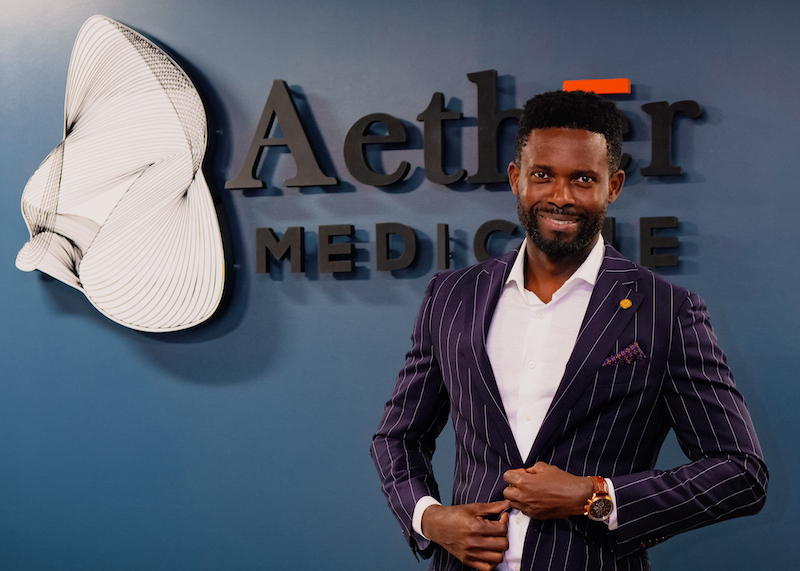
Asare Christian, MD, is reinventing pain management and the patient experience at his new offices in Wayne.
Pills, steroid shots, physical therapy, surgery – isn’t it time you jumped off the outmoded pain train and hopped aboard a cutting-edge convoy?
Newly opened in Wayne, Aether Medicine offers an innovative approach to pain and chronic disease that combines the latest science – medical and behavioral – with the latest technology.
And it delivers it in a convenient, uniquely supportive, and, may we say, fun environment.
Because why should visiting a pain doctor be, well, a pain?
Aether’s founder is visionary physician Dr. Asare Christian, MD, who brings a trove of credentials and five-star patient reviews to the table.
He’s board-certified in Physical Medicine and Rehabilitation – he was PM & R Student of the Year at top-ranked Medical College of Wisconsin). After a residency at John Hopkins, he was awarded a fellowship to Harvard where he earned a master’s in public health. He’s studied AI in health care at MIT and has advanced training in chronic pain management, spasticity, ultrasound-guided injections and medical cannabis titration.
But Dr. Christian is more than a master clinician and lifelong learner.
He’s a mensch.
In a specialty where empathy – really listening to your patients – is everything, he has it in bushels. And he’s structured his practice so he has time to get to know you and map out a customized treatment plan that offers real relief and prevention of recurring pain.
According to Christian, the old methodology just doesn’t match the science.
For decades, physicians have taken a biomedical approach to pain. You twist your ankle, your doc calms the inflammation, then sends you to physical therapy. Or you strain your back, you get cortisone shots, then spinal fusion surgery. You invest so much effort in what’s often a losing battle. The pain wins.
The biomedical model works best for acute pain. It finds the cause, then rests it, numbs it or fixes it in the OR.
But when headaches, muscle pain andnerve pain last longer than three months, they’ve crossed over into the complex realm of chronic pain and the usual solutions won’t work, Christian says.
They simply don’t account for the brain’s perception of pain.
“Huge things are changing in the brain when you have chronic pain,” says Christian. “Imaging of the brain shows us that. Chronic pain is a disease of the brain.”
Cutting-edge science confirms that cognition – how you think about your pain or disability, how you talk about it, and the emotions it engenders like depression, anxiety or anger – make the pain worse. “We’re now able to measure the energy of thoughts in a lab,” Christian says.
“If you meditate, you can start making genes that make you look younger, decrease your inflammation markers and decrease your insulin metabolic processes.” Crazy, right? But scientifically proven.
Let’s say a patient comes to Aether Medicine with pain endured for 20 years and blames it on an L4 disk herniation.
“But the herniation has been fixed. You’ve had the surgery, correct?” Christian asks the patient.
“Yes.”
“You’ve had injections, correct?
“Yes.”
“And yet you still have that pain. So the herniation is not the source of your pain.”
Unlike an orthopedic surgeon or neurologist, Christian looks at each patient holistically, addressing all the factors that influence pain, neurological and mobility issues: sleep, nutrition, stress and movement.
“If you don’t sleep, you don’t heal,” he says. “If you’re still eating junk and are stressed out, you won’t get better in PT.”
Yes, he can prescribe opioids but only with a careful plan and exit strategy.
Yes, he can prescribe medical cannabis for sleep and stress – but he won’t send you off to try your luck with the “bartender” at your local dispensary. (Christian is an expert in titration of cannabinoids like CBD and cannabis. He knows precisely what works and is safe, given your age and medical profile.)
And yes, he can expertly inject Botox to stop the drooling that sometimes comes with Parkinson’s, the spasticity that accompanies MS, and the blinding pain of migraines.
But he’ll also take a functional medicine approach to pain.
He’ll dig in to find the root issue. What is your pain or weakness preventing you from doing, e.g. sit on a bleacher at your grandchild’s game, sleep in the same bed as your husband, enjoy a night out with friends? He’ll factor in the emotional component. Then, he’ll come up with a step-by-step game plan to get you back in action, using a mix of modalities.
And get this, he’ll see you in a room that’s designed to match what he’s working on. Specific rooms at Aether are geared to meditation, nutrition, exercise and sleep.
Aether makes office visits easy.
The parking lot is short stroll and a quick elevator ride away.
Technology streamlines check-in so you get more time with Dr. Christian – 45 minutes to an hour for first visits, not the cursory 15 minutes you get with most specialists.
You can self-schedule online if you’d rather not call.
Offices are bright and cheerful, not sterile.
“We want to make it fun. We’ll play your favorite musical artists when you’re here. We might make smoothies with you. For fit patients, we’ll do a squat challenge with you.” Whatever it takes.
Bala Cynwyd retired nurse Dottie Cassidy Pfohl took Dick, an 86-year-old friend with neuropathy and mobility issues to Dr. Christian two months ago. She says Dick has made great strides: he’s motivated to do PT twice a week, he’s walking daily to build stamina, and he’s exploring water therapy and new assisting devices.
“The best thing of all is that he’s encouraged; he sees progress,” says Cassidy Pfohl. “When you combine state-of-the-art medicine – a comprehensive, interdisciplinary approach – with a personal touch in a pleasant environment, that’s magic.” The former nurse coordinator for Penn Medicine’s MS Center, she plans to refer colleagues and MS patients to Dr. Christian.
“I want to build relationships and trust and I really want to help people,” Christian says. “We need to educate them, empower them and hold them accountable.”
In quantum physics, aether is the energy of creation and renewal – physical and spiritual. Precisely what Aether Medicine is all about.
Aether Medicine, 565 E. Swedesford Rd. #315, Wayne, 484-291-7307, treats musculoskeletal and neurological pain and weakness with cutting-edge medical and psycho-social modalities. Free, no-obligation discovery sessions. Hybrid insurance/membership payment.
Clark’s Manor: A new safe haven where mental health care is woven into daily life
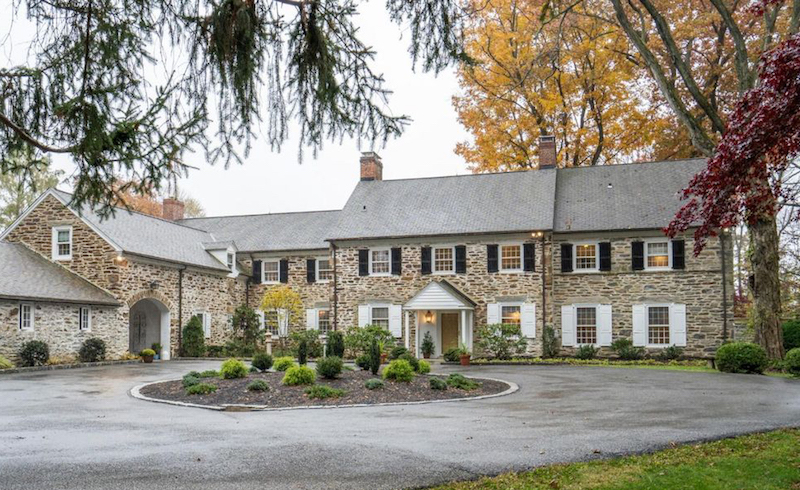
Clark’s Manor on Providence Road in Media, the region’s first “milieu” model home, has space for five more adults with chronic mental illness.
Traditional counseling sessions have their place, but for adults with chronic mental illness, a little subtle therapy can go a long way.
That’s the secret sauce at Clark’s Manor, a four-acre Media estate that’s now home to former Conestoga athlete Clark Widger and two other adults with chronic mental illness.
The farmhouse is 10,000 square feet with enough private bedrooms for five more residents.
Run by the behavioral health pros at Elwyn, Clark’s Manor is downright lovely – unlike some group homes. Its clinical care – delivered by highly trained and educated staff – is top-notch but low-key.
Adults are respected as fellow adults. Residents might head out to a job, pursue a hobby or just have fun during the day, then reconvene to have family-style dinner together at night.
Music enthusiast Clark Widger, Conestoga ‘02, jams in the Music and Arts Studio (above), one of many subtly therapeutic spaces at Clark’s Manor. (Below) he practices keyboarding in the living room.
In recent months, you may have spotted Clark Widger or his new housemates at George’s Music in Berwyn. the King of Prussia Mall, a Phillies game, Wegmans or on a go-cart at Arnold’s in Phoenixville.
“Our residents love a Wawa hoagie and enjoy food shopping, the YMCA, the local church and nearby Ridley Creek State Park,” says Clinical Care Manager Melanie Coupland. One even works out with a personal trainer.

One of Clark Widger’s many hobbies: skateboarding the grounds of Clark’s Manor with Jerome, the pug owned by Clinical Care Manager Mell Coupland.
“Residents have learned to utilize one another as a way to work toward their goals of getting back into the community,” adds another care manager, Rachel Jernejcic.
Clark’s Manor uses the innovative “milieu model” – a holistic approach to chronic mental illness that keeps residents connected to personal, family, professional and community supports. Sure, there are controlled therapy sessions but much of the therapy is subtle and occurs naturally in community settings or in the safe confines of the home.
Woven into daily activities are proven techniques like cognitive behavioral therapy, motivational interviewing and mindfulness-based stress reduction.
The care team helps residents define what they want to do and works with them to create a plan to help them do it, systematically removing obstacles. For example, they might practice social skills, baking a favorite dessert or sorting laundry, or strategize ways to enjoy a family wedding.
Residents will soon have the benefit of participating in an art therapy program and a personalized nutrition program. Cognitive remediation, in partnership with Penn Medicine, will soon follow.
With two new members, “the Manor’s vibe has become more fun,” says Coupland. “We’ve been out and about more. We’re more like a family.”
Families interested in learning more about Clark’s Manor are invited to contact Art Fastman, Director of Operations, at [email protected] or call 610-675-7669. To read more about Clark’s Manor in SAVVY, click here, here and here.
Army vets open gelato café at Wayne Train Station
They served their country in Iraq, now three Army buddies are deployed at the Wayne Train Station serving their civilian neighbors.
Their new post: Mad Anthony Wayne’s Café. The name salutes their own military pedigrees and the fiery Revolutionary War general after whom Wayne is named.
With soaring ceilings, Victorian-era bones and shaded trackside tables, it’s a splendid spot for a post-dinner gelato, a morning latte or a midday pastry pick-me-up.
Even better: everything served here is local.
The gelato is from D’Ascenzo’s in West Chester (try the Peaches and Honey!), the pastries are baked down the road at Minella’s, the bagels are from Mike’s Original Bagel in Broomall, and the coffee is Philly’s own La Colombe – although Mad Anthony’s owners hope someday to roast their own and name coffees for various war generals.
As for that gelato, “go ahead and indulge,” says co-owner Melissa DiStefano. “Gelato has less fat and air than ice cream so it weighs almost three times as much, so you feel satiated with less.”
Keep Reading
How did these Army National Guard officers end up joining forces?
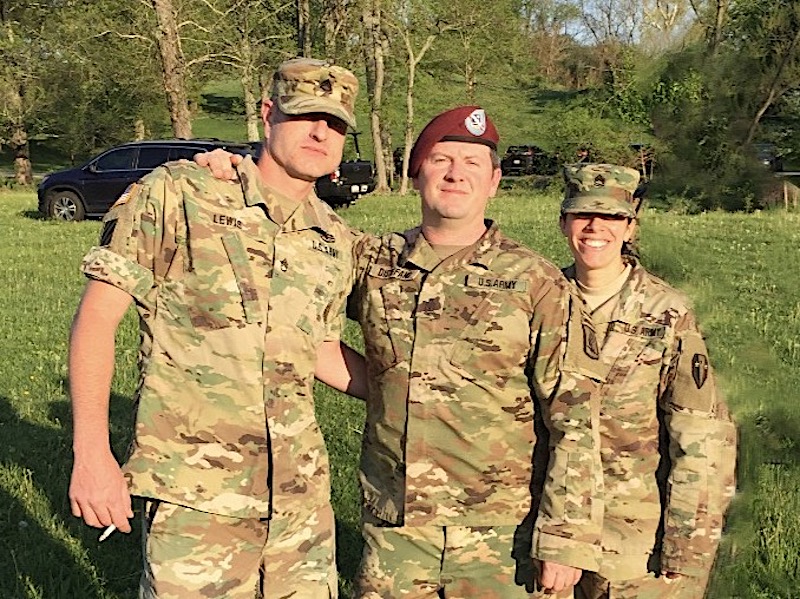
Co-owners Joe Lewis and Anthony and Melinda DiStefano in their Army National Guard uniforms in 2019.
As with many 2021 career pivots, the pandemic played a part.
For the last four years, Melinda and Anthony DiStefano, rented the train station café for their family’s Thanksgiving dinner. The turkey fryer was set up outside; fixings for 40 would be laid out on the counters.
But when COVID killed Wayne’s commuter trade and the café’s owners wanted out, Melinda DiStefano saw an opportunity. Maybe it was time to stop and smell the coffee beans.
Although she still works full time for the Army, in four years, Sgt. first class DiStefano will retire. Running a café around the corner from her Wayne home would jibe with her kids’ schedules. (The couple has two boys, ages 6 and 3, and a new baby on the way.)
Anthony DiStefano works full-time as an engineer and still serves part-time in Rhode Island’s Army National Guard. So the couple brought in a retired National Guardsman friend, Joe Lewis, as a partner. “He’s very business savvy and he lives around the block,” Melissa says.
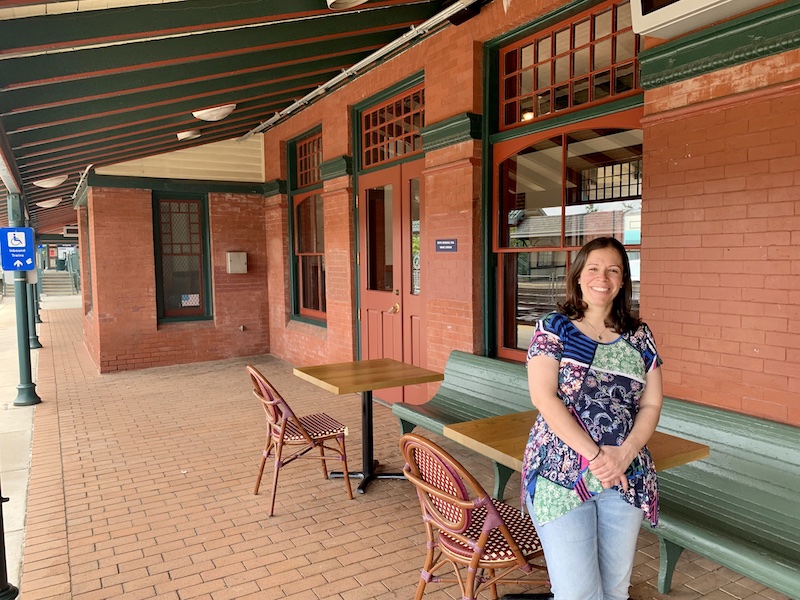
Melinda DiStefano says her outdoor seats on the raised train platform are all covered and catch the breeze.
To open shop, they wheeled in a gelato cooler and a few cabinets and touched up the paint.
Her husband designed the logo – cross bayonets for the Paoli Massacre and the victory at Stony Point – seminal battles led by Mad Anthony, while Melissa learned how to be a barista. “I don’t even drink coffee,” she admits with a laugh.
Mad Anthony Wayne Café at the Wayne Train Station, 135 N. Wayne Ave., is open daily 7:30 a.m. to 9:30 p.m.
Read less
Is Wayne’s IM | Health the future of family practice?
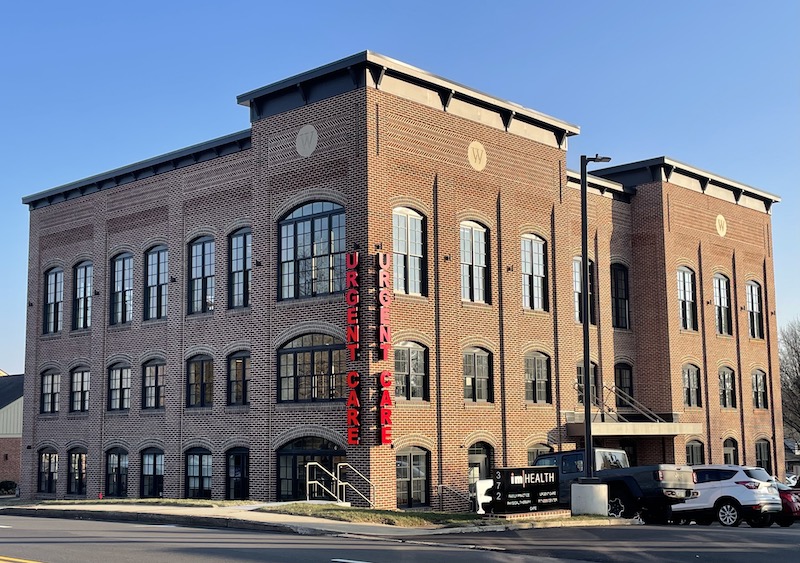
Modeled after the historic Cigar Factory in Charleston, S.C., the new IM | Health is “in context with what else we see in Wayne,” says founder Rock Walker, MD. “I wanted this to be a really solid building. It’s steel, brick, and concrete and not much else.”
Did you do a double-take when you first passed this brick beauty in Wayne?
Us, too.
Shiny and new but with historical flourishes, she’s blemished only by that big red “Urgent Care” sign. But forgive them for advertising; This is a commercial enterprise, after all.
What’s inside IM | Health (I am health) is even more remarkable: an approach to independent family medicine like nothing we’ve seen.
Under one roof and spanning three floors is an arsenal designed to keep you – counterproductively? – from having to come back.
You can get your annual physical, sip a smoothie (when the on-site café reopens after COVID), get an x-ray or script for an antibiotic in Urgent Care, rehab your tennis elbow in PT, see a registered dietician, even pump iron in a state-of the-art “Performance Center” that spans the entire third floor.
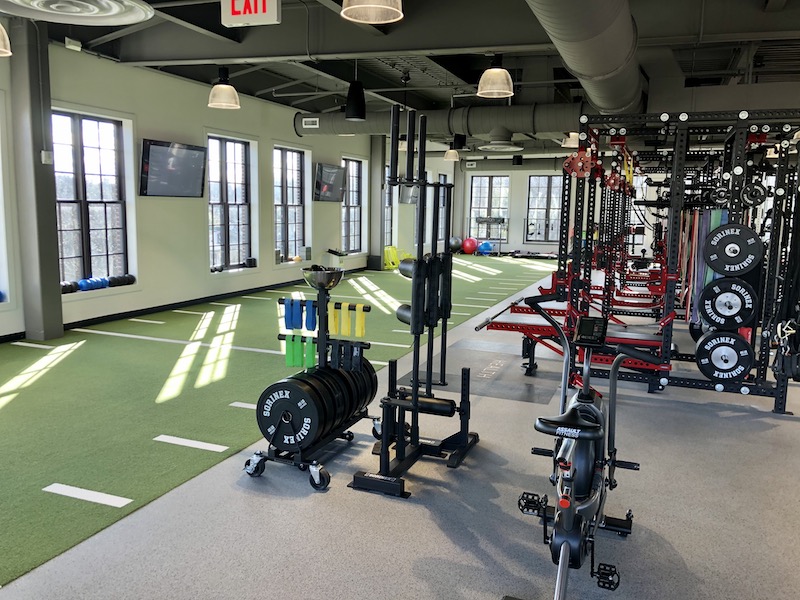
Concerned about the role of obesity in chronic disease, IM | Health’s physician founder committed a third of his new building to a “Performance Center” open to all ages and fitness levels, whether you’re a patient or not.
It’s a one-stop, health co-op sprouted from the fertile brain of one Rock Walker, MD, hometown guy (RHS Class of ’81), family medicine physician, and founder of Radnor Family Practice 20 years ago.
“This is primary care the way it really should be,” Walker tells SAVVY.
IM | Health “inspires people to be healthier.” he says. “I want people to enjoy being here. It’s not about being sick. It’s a vibrant place. People are working out. You can have a latte. I even wanted it to smell differently – not like a doctor’s office. I wanted people to walk in and to feel like life, not death.”
Keep Reading
These days, convenience is king, Walker says. Hence the on-site urgent care and physical therapy. He says patients with mobility issues might start with PT, but “their real problem may be that they’re overweight or developing diabetes or asthma, so we transition them to lifestyle changes – eating better and trying to lose weight … It’s so much easier to write a prescription than it is to do this.”
Worth noting: This temple of wellness might not have been built if Walker hadn’t worked in finance for nine years before medical school. Bringing his vision to life required deft financing. No way the intricate brickwork, concrete “W” inlays, the industrial-chic interior, the state-of-the-art x-ray machine and rad gym equipment could have been funded on a family doc’s salary.
All services – urgent care, PT, nutrition counseling, personal training and yoga – are open to the public, whether you’re a patient of Dr. Walker or his colleague, Dr. Joanna Bell, or not.
But if you are an IM | Health patient, “you can have up to nine people taking care of your health, Walker says. “And why would you go anywhere else for urgent care. We have your records; we know you.”
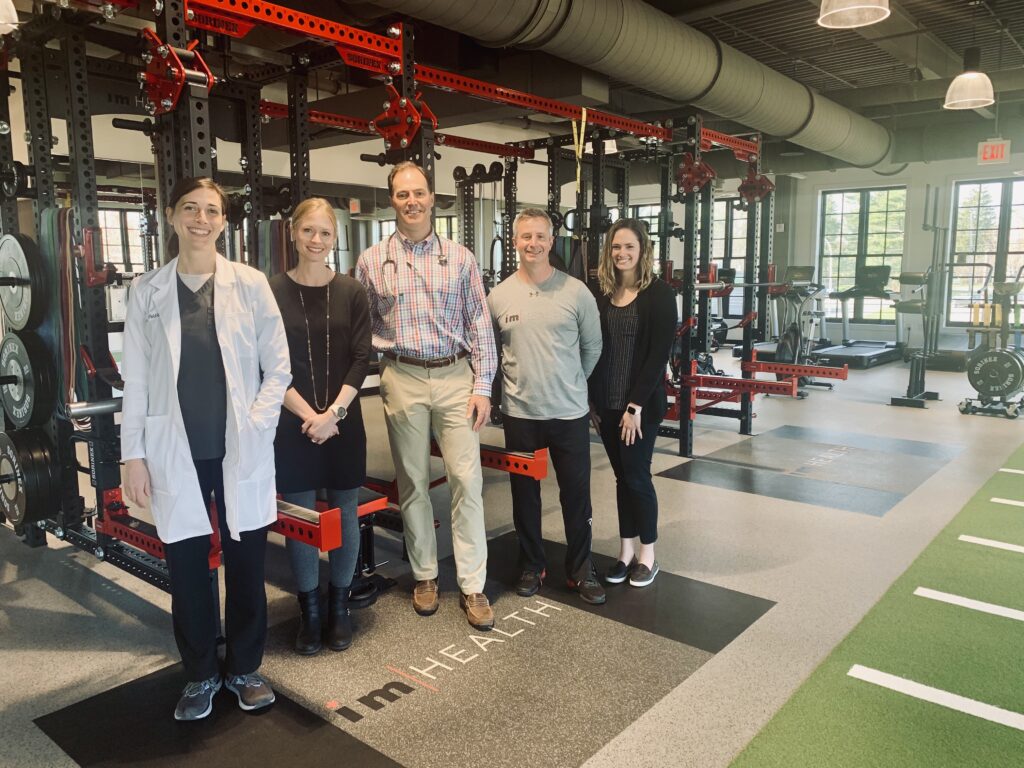
Some of the team at IM | Health in Wayne: Urgent Care Physician Assistant Rebecca Winfield, Managing Director Emily Fisk, founder Rock Walker MD, Registered Dietician Devon Forbes and Performance Center Director Rene Cammarata.
Providers take their time here. “We see less than two people in an hour here.” Walker calls physicals “the most important visits I do every day. So many things can be prevented or caught early.“
All that’s missing at IM | Health are mental health counselors but Walker’s working on that, too. “It’s something we deal with every day. “At least 25 percent of patients have something on the mental health side.”
If all goes well in Wayne, the world might see more IM | Healths one day.
“This is a beta site,” Walker says. “All family doctors should be in this situation. This is the way people should practice.”
IM | Health, 372 W. Lancaster Ave., Wayne, 610-688-8807. Performance Center memberships available.
Read less
Smokin’ hot Brooklyn barbecue beckons from the old Mistral space at the KOP Mall
After Mistral (those wild winds in France) blew out of King of Prussia Mall, we weren’t sure what restaurant might blow in. Would it make the Mistral mistake: serve food too precious with a vibe too fancy for its mall location?
Nope. Lesson, we can happily report, was learned.
Mistral’s successor, Morgan’s Brooklyn Barbecue, is, in fact, aggressively casual with picnic tables, rip-your-own napkins, a corrugated tin bar, distressed paint and plank floors.
Morgan’s first joint outside of Brooklyn, NY, it reportedly owes its existence to the owner’s mall visits during ice hockey trips to PA with his son.
Claims to fame: Round-the-clock smoked meats, including the fatty beef brisket that often sells out in NYC. Yep, you choose “fatty” or “lean” brisket here and pay a buck or two more for the fat – like a finely marbled steak but, uh, not. We tried the Three Pigs – ribs, belly, pulled – and the lean brisket. Thumbs up on pigging out. But hold your nose and choose fatty.
On the menu: Smoked brisket, ribs, pork belly, turkey, chicken wings and ribs, assorted mac ‘n’ cheeses $9 – $16, sandwiches $14 – $17, tacos $12 – $14, salads and sides, plus house-baked desserts. A half-pound of meat – $12 – $17 – should be plenty for most – but you’re welcome to chow down a whole pound.
From the bar: Local craft brews on eight rotating taps, locally distilled bourbons and whiskeys, cocktails and wine.
Sit in one of 80 seats indoors or 50 out under umbrellas. Hard benches ensure you’ll mangia and be on your merry way.
Morgan’s Brooklyn Barbecue at the King of Prussia Mall (under Grand Lux Café and near Neiman’s), 610-572-5444, is open daily noon to 9, Fridays and Saturdays noon to 10. Takeout and catering available.
Words of advice to parents of shell-shocked college kids
If your college student came home a bit out of sorts, you’re not alone. Wayne psychotherapist Karen Moon says our sons and daughters showed amazing resilience this past school year, adapting to new rules on the fly, shrinking their social circles, staring at screens.
But many are falling apart at home this summer; “their buckets of resilience have run dry”, she says. They’re bushed. To help us help them heal this summer, she sent along a few tips for parents worth sharing:
- Recognize that you faced similar challenges this year, e.g. feeling cheated of friends, space, holiday plans. We’re all grieving losses.
- Validate their feelings and be open to hearing how they coped even if it’s painful, e.g. food binges, drugs, alcohol.
- Let go of your expectations for your child’s college experience. Find the positives that came out of this year.
- Don’t overreact if they tell you they want to transfer or drop out. Be patient. Hear them out. Listen to their problems.
- Reach out for professional support if you’re overwhelmed. Emotional parenting is tough!
Two new lookers in Suburban Square: Framebridge and Warby Parker
Two online retailers have planted physical roots in Ardmore – one sells frames for artwork, the other for your eyes.
Framebridge just opened its first Philly-area store, its ninth since it expanded to brick-and-mortar retail six years ago.
Unlike typical mom-and-pop framers, shoppers see a mockup of their artwork in a chosen frame on an iPad and pricing is solely by size, not frame selection.
“We’re known for no surprises,” says District Manager Brian Rohloff, in town for Framebridge’s Suburban Square launch June 17.
The chain doesn’t offer quite as many choices as typical frame shops but Rohloff insists it “curates the best and brightest.” Turnaround is generally seven to 10 days.
And around the corner, Warby Parker debuted an eye-popping eyewear outpost earlier this spring, thanks to original murals by Philly illustrator, Loveis Wise.
An industry disrupter in its digital-only days, WP donates a pair of glasses for each one it sells and keeps prices down even as it stays hip.
A tall order but this Wharton-alum-led biz is more than able to fill it.
Framebridge, 43 Coulter Ave. Ardmore, 610-490-8843 is open Mon. to Sat. 10 – 6, Sundays noon to 6. Walk-ins welcome.
Warby Parker, 66 Coulter Ave. Ardmore, 610-686-3784, is open Mon. to Sat. 10 – 6, Sundays noon to 5.
Devon Yard farmer’s market deserves a second look
We can’t quite figure out why the weekly farmer’s market in the parking lot of Devon Yard isn’t jammed.
If you haven’t yet been, it’s a true producers market. Unlike some farmer’s markets that allow vendors to buy stuff and resell it, all Devon Yard vendors must be small-batch and local to PA. They grow and raise everything they sell.
“In my mind, there’s no comparison,” Christy Campli, who runs the Devon market and four others. “If you want specialized, high-quality food that actually supports a small farm directly, this is the place to be.”
Come here to connect directly with your food source. And to eat seasonally and locally – better for you, better for the environment (no fuel-sucking long-haul truck or plane rides), and better for our food-maker neighbors and small farms.
So, no, you won’t see a tropical fruit here – not ever.
What you will see: grass-fed dairy, pastured chicken and eggs, craft butchers, heritage-grain breads, cult-fave Kismet bagels, plant-based cooking sauces, farm-stand produce, local lavender products and oodles more.
Even the management is homegrown: Christy Campli is a Villa Maria grad; her dad is the Malvern-based photographer, David Campli. A College of Charleston alum, she managed farmer-focused restaurants and markets, including Wyebrook Farm in Honeybrook, before taking over Growing Roots Partners’ markets in Devon, Malvern, Downingtown, Eagleview and West Reading.
The Devon Yard market is only open once a week because these producers need the rest of the week to make, grow and raise everything themselves.
And the tents go up on Wednesdays – so there’s no conflict with beach weekends.
Devon Yard Farmer’s Market, 25 S. Waterloo Rd., Devon, in the Terrain parking lot, is open every Wednesday 11 a.m. to 2 p.m.
Other worldly ice cream in Bryn Mawr
Some are calling Bryn Mawr’s new ice cream parlor out of this world. But why not just call it surreal?
The owners do.
Surreal Creamery serves up scrumptious mason-jar sundaes, shakes, cones, lattes, and bubble-tea floats (“Floateas) in the former Sweet Freedom Bakery space at 1038 Lancaster Ave.
It’s the mini-chain’s first local outpost and its first in PA.
Fair warning to sweet tooths: Their sundaes will set you back ten bucks. But you do get to keep the mason jar.
Visiting a renowned gardener we never heard of
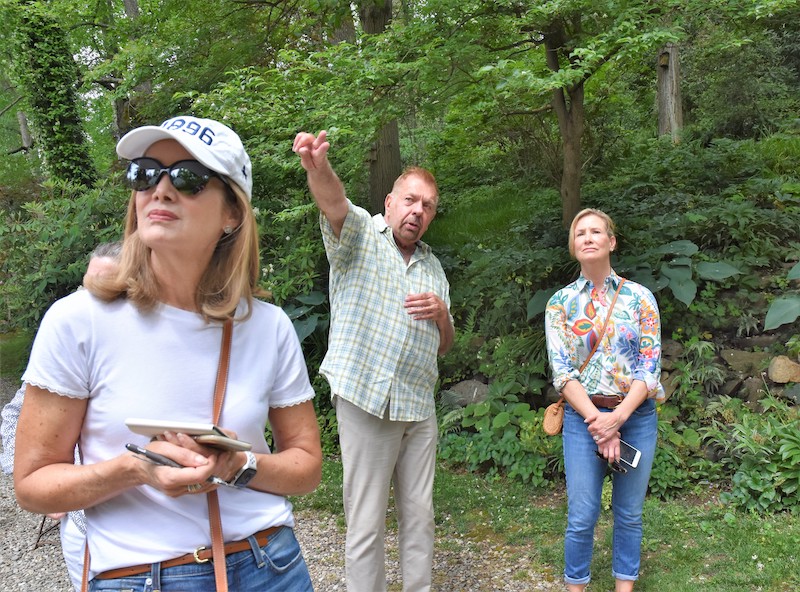
With garden maestro David Culp and Chesco Commissioner Michelle Kichline in early June. Photos by Carla Mudry.
Here at SAVVY we like to think we know our own backyard – that’s our raison d’etre, after all.
So picture how gobsmacked this scribe was to be invited – thank you, Carla Zambelli Mudry! – to behold Brandywine Cottage, a thing of riotous beauty just west of the Main Line.
In Downingtown, of all places.
A private tour of David’s Culp’s suburban splendor may be old hat to avid gardeners, followers of Martha Stewart Living (Culp and The Cottage have made multiple appearances) and readers of his books. The Layered Garden is in its eighth printing; A Year at Brandywine Cottage published during the pandemic.
But to amateur gardeners like me – OK, non-gardeners like me – this internationally acclaimed garden designer’s habitat was a revelation:
Keep Reading
- of nature fastidiously, but never regimentally, tended;
- of rare snowdrops and hellebore hybrids layered into the landscape;
- of surprise planters and $300 bulbs foraged from gardens around the globe;
- of lush fruits and ripe vegetables in a rosebush-bordered cook’s garden affectionately dubbed The Veg.
- of flights of timeworn fancy exalted in a “Ruin Garden”
- of Culp’s home, a colonial-era soldier refurbished and retained, girded to stand sentry over the greenery encircling it for another 230 years.
Above all, Brandywine Cottage – “one man’s terrarium,” Culp calls it – celebrates man’s labors: tilling, toiling, tweaking but never perfecting. Weeds mingle among the petals. There are cracks and crevices, chips and blemishes.
Because nature, as Culp’s gardens show us, isn’t perfect. Ever-changing, it was never meant to be perfect – whether it grows from the ground, flies over it or walks upon it.
In his latest book, Culp writes that people often ask him, “What have you done with your life?”
“I made a garden,” he tells them.
That you have, David Culp. That you have.
David Culp has been lecturing, winning national awards, and designing glorious gardens for more than 25 years. He is currently volunteering his time to create a transformational garden at an industrial ruin at historic Bondsville Mill Park in Downingtown. His books are sold on Amazon.
Read less
Honoring a born advocate in Tredyffrin

Celebrating Marybeth Christiansen (seated) at her bench dedication in Wilson Farm Park are Tredyffrin neighbors Caroline O’Halloran, Stacy Stone, Barbara McConnell, Jeff Abramson, Susan Guenzer and Laura Abramson.
“#Keepgoing” reads a fresh inscription on a bench at Wilson Farm Park, newly dedicated to an uncommonly dedicated crusader among us.
Marybeth Christiansen of Malvern recently stepped down as PA legislative lead and then state leader of MOMS Demand Action for Gun Sense in America.
Among the most notable achievements on her watch: Harrisburg passed a law, languishing for years, that forces domestic abusers to surrender their guns. Common sense, right?
Christiansen brought a litigator’s strategy (she was a malpractice attorney), an advocate’s eloquence and a mom’s passion to the cause, and we’re all safer because of her. She stepped down from MOMS but continues to share her wisdom with other gun-sense groups, inspiring us all to #keepgoing for causes we champion.
This and That
Heading to the beach for the Fourth? Don’t forget to refer back to the 2021 SAVVY Shore Guide for a rundown of new, nearly new and hidden gems from AC to Cape May.
The PHS Pop Up Garden at Manayunk is now open for its second season. Head to 106 Jamestown Ave., for eye-popping horticulture, savory cocktails and a full menu from Cantina Los Caballitos and Kyber Pass Pub. Lots of veggie options, too. This year, they’re even taking reservations for parties of six or more and special occasion rentals for groups of 20+.
Now that word is getting around, Radnor’s plan – years in the making – to take much of the “woods” out of Fenimore Woods seems far from a sure thing. Park users, preservationists and the Radnor Conservancy are aligned against the project, which would demolish the shady oasis’ run-down, historic stable building and move and/or rebuild its outmoded playground, pavilion, restrooms and parking lots and paths. Basically, a total gut job. The biggest issue by far: the proposed sacrifice of 117 mature shade trees.
Last week, a Board of Commissioners subcommittee held a virtual public meeting on the “Park Improvement Project.” And let’s just say, officials got an earful. And plenty to chew on.
Another hot potato, this one in local school districts: Critical Race Theory (CRT), which is prompting petitions and counter-petitions and charged school board meetings here, there and everywhere. About 100 parents showed up for T/E’s first in-person board meeting in more than a year to speak their piece. Never mind that CRT isn’t actually taught in T/E schools and isn’t part of any K-12 curricula. A vocal minority seemed to conflate the district’s new equity initiative, which was up for renewal that night, with Critical Race Theory, fearing that teaching the roots of America’s systemic racism and white privilege would make kids anxious or feel bad about themselves. In recent weeks, CRT has become a catchall for the kinds of race discussions in schools that some conservatives oppose. For more on this complex topic, check out WHYY’s in-depth story on the T/E meeting or read this editorial about the growing anti-CRT and anti-anti-CRT movements.
Seeing this sign around Chester County? They started popping up in Downingtown, which has lost seven students to suicide in less than three months. A Lights of Hope gathering in early June drew almost 600 people, social media is buzzing and petitions are circulating. Simply sharing the National Suicide Hotline number is not enough, say parents signing a petition. They want Downingtown Area School District to hire more counselors and provide more mental health resources. In T/E, the community coalition ARCH is offering parents free Youth Mental Health First Aid training July 20 and 22.
With a slew of new merchants, Ardmore is rounding back into pre-pandemic form. Two new lessees for spaces at Cricket Flats: Up to Eleven, an electric bike shop/café featuring Reanimator coffee and Kismet bagels, and Salon True, relocating from Lancaster Ave.
Meanwhile, the former ground floor of Swain Destinations is now split between Smoke Scene, a hookah/vape/smoke shop, and Action Karate. Swain still has the second floor.
Warm words of support from Malvern Prep after alumnus Carl Nassib came out on IG, the first openly gay active player in NFL history. “As a school community we’ve always been proud to have him as an alumnus not only because of his athletic talent but because he’s also just a wonderful human being,” Malvern Prep spokesperson Allison Hall told Billy Penn, “Today more than ever, we support Carl and stand with him.” Nassib, 28, walked on at Penn State and now plays for the Las Vegas Raiders. When he came out, he pledged $100,000 to the Trevor Project, a nonprofit that helps prevent LGBTQ youth suicides.
Legally blind – and blonde (of late) – Malvern gal Natanya Sortland will jump off a building – OK, rappel 10 stories – to raise money for the nonprofit that empowered her. And she’ll be dressing the part, donning a Lady Liberty Costume to symbolize the freedom Vision Corps gave her after she lost her sight following a near-fatal brain hemorrhage. “They gave me my life back,” she says of Vision Corps. Oh and did we mention, Natanya’s deathly afraid of heights? Click here to donate to Natanya Sortland’s fundraiser for Eye Drop 2021 set for July 9 at the Holiday Inn in Lancaster.
Happy Birthday to us! Fireworks are back in most Main Line towns this Fourth and the Garrett Hill parade will step off on July 3. But while Narberth mulls a new Historic District Ordinance, a big part of its history has become, well, history. The Narberth Fourth of July Committee, the merry band of volunteers that’s been around 80 years, staging the borough’s fireworks on the Fourth, its Easter egg hunt, summer concerts, Halloween parade and Santa’s visit, has called it quits. A committee member’s social media post called the lack of volunteers a “a huge factor.” It also cited waning support due to “changes in leadership” in the Borough. We tried, but so far have failed, to get further comment on the group’s decision.
Holy Ravioli! The Gravy Wars: South Philly Foods, Feuds & Attytudes tour touches down at Rosalie in Wayne July 19. Leading the charge: the spicy meatball herself, radio broadcaster, Gravy Wars author and “Saucy Chef” Lorraine Ranalli. While you lap up three courses, she’ll dish on her book and the crazy culinary competitiveness of South Philly. Gravy or sauce? Ranalli will let ya know. $55 Eventbrite tickets include an autographed book.
And finally, it’s been one helluva year for us, collectively (and for me, personally) so we’re putting our feet up for a stretch. Hence, this double issue. Rest assured SAVVY will be back bursting with news in late August. Until then, we’ll see you on Instagram, around town and down the shore. Hope you take some time for yourselves this summer, too. You deserve it.
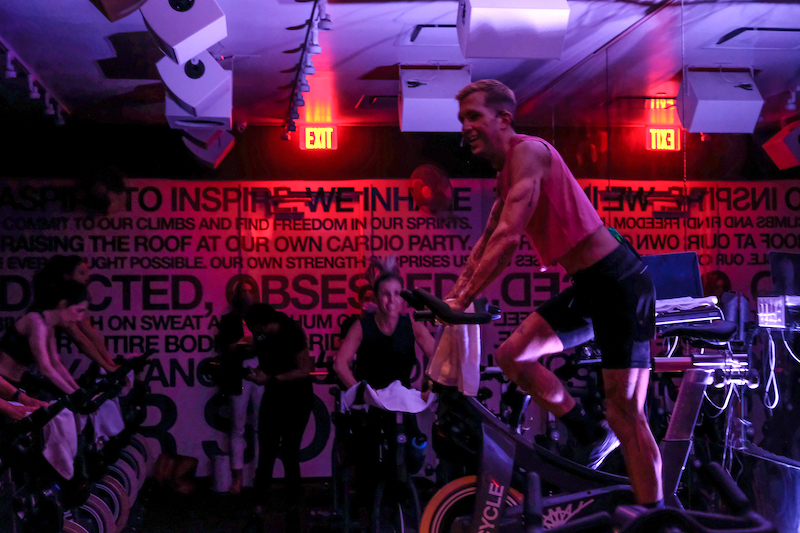
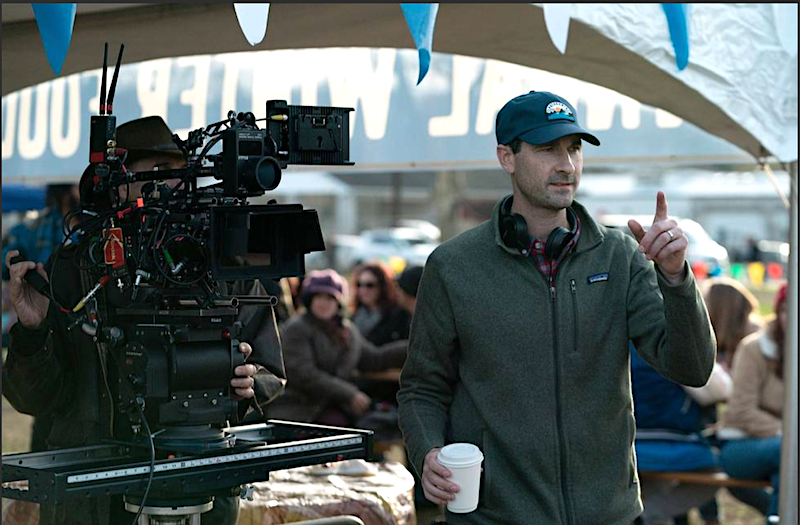
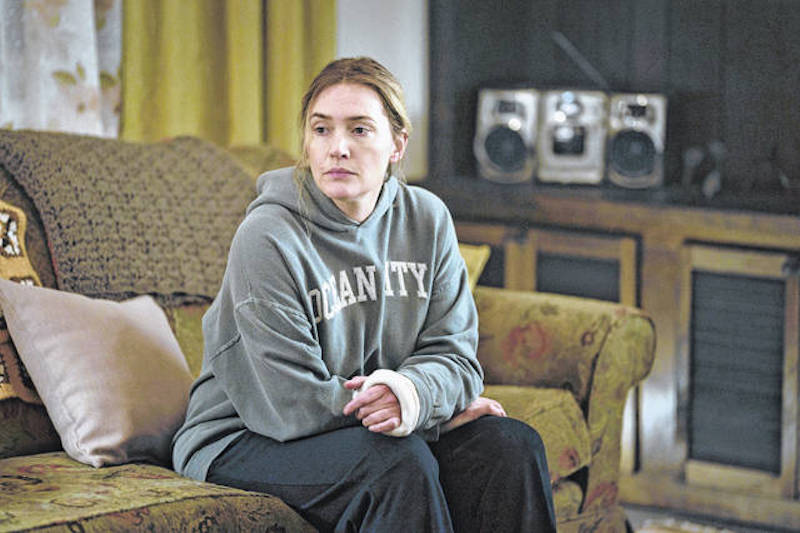
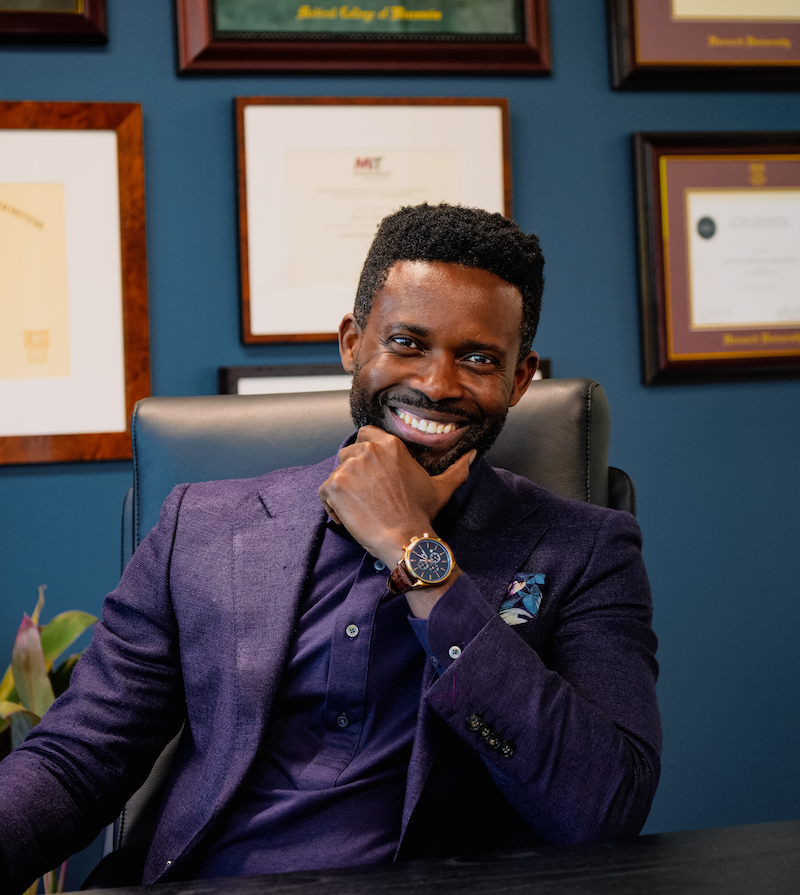
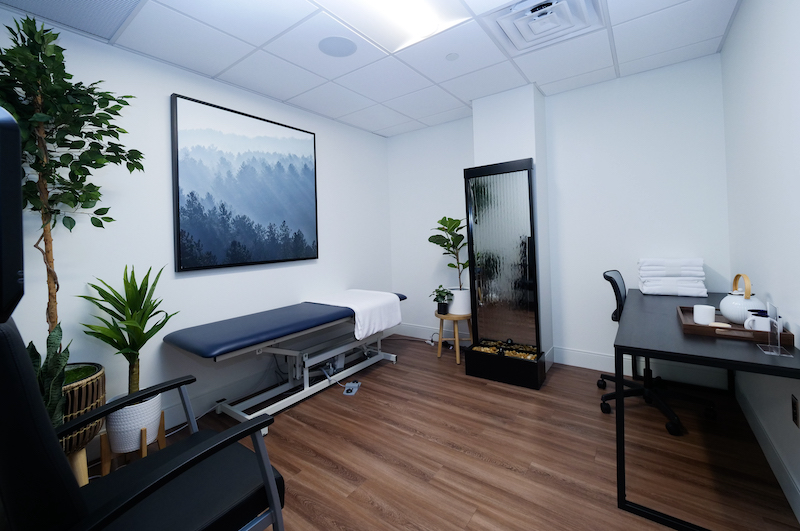

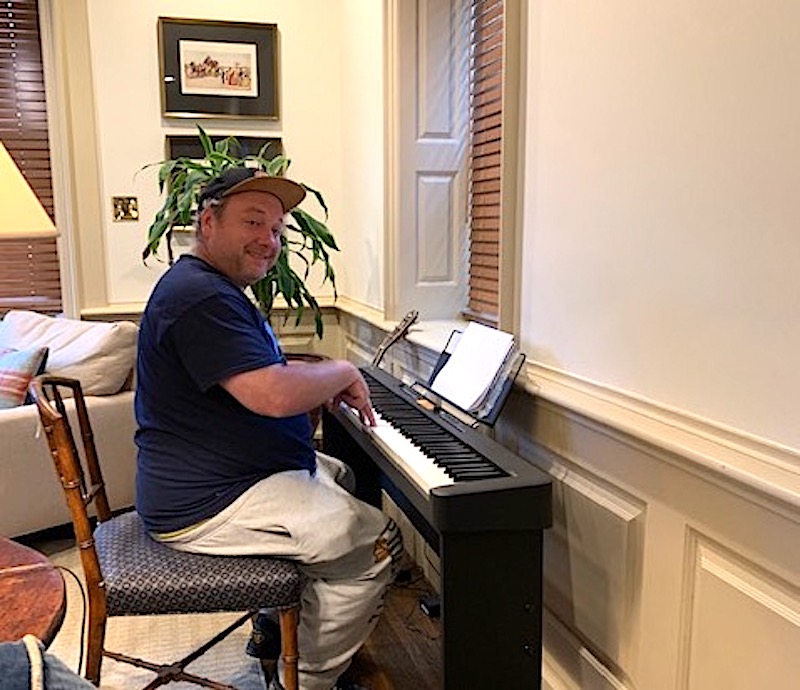
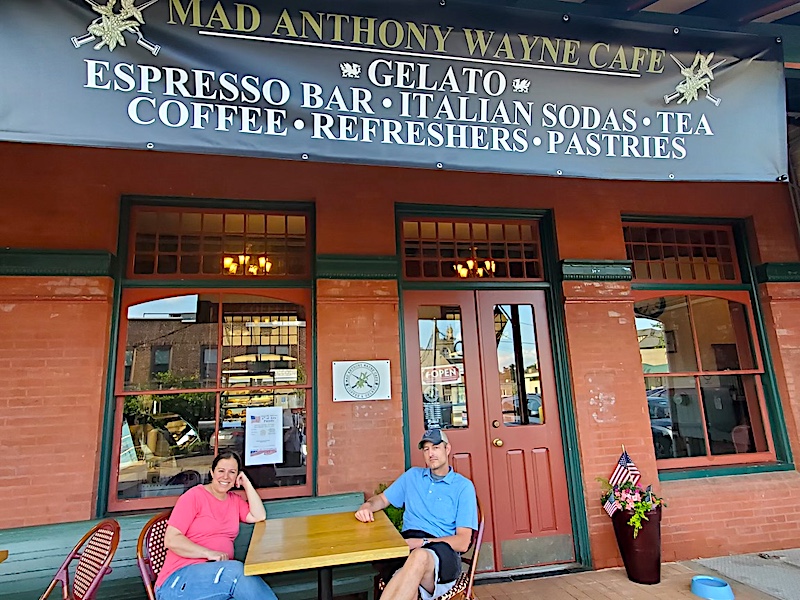


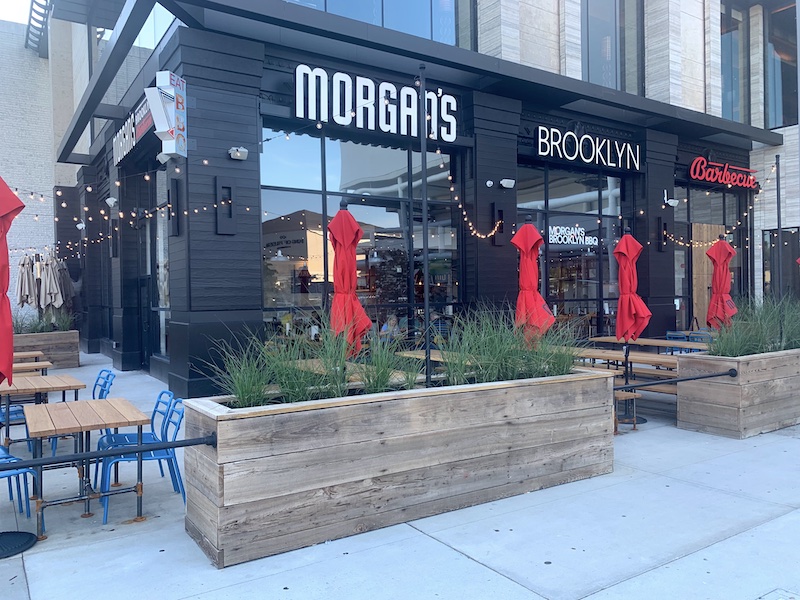
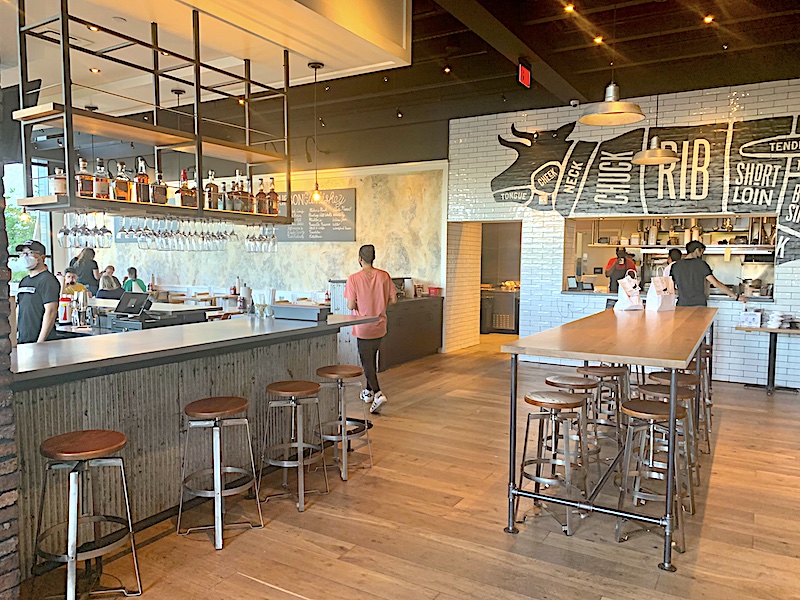
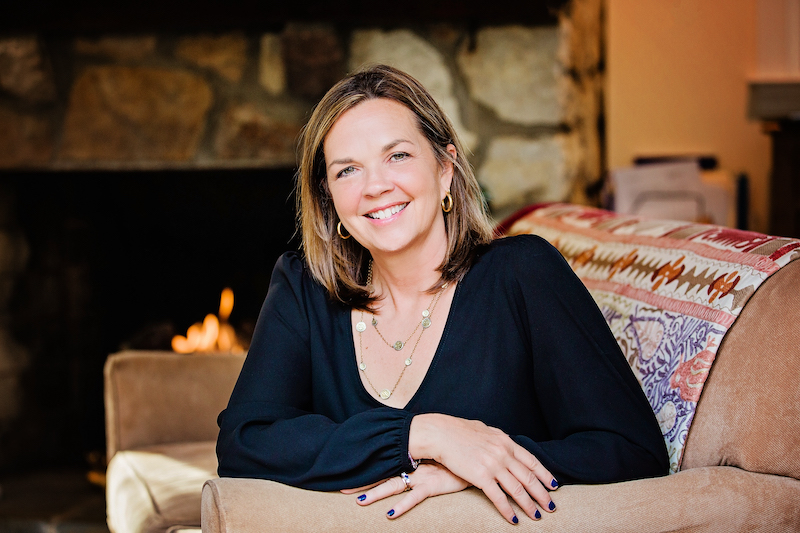
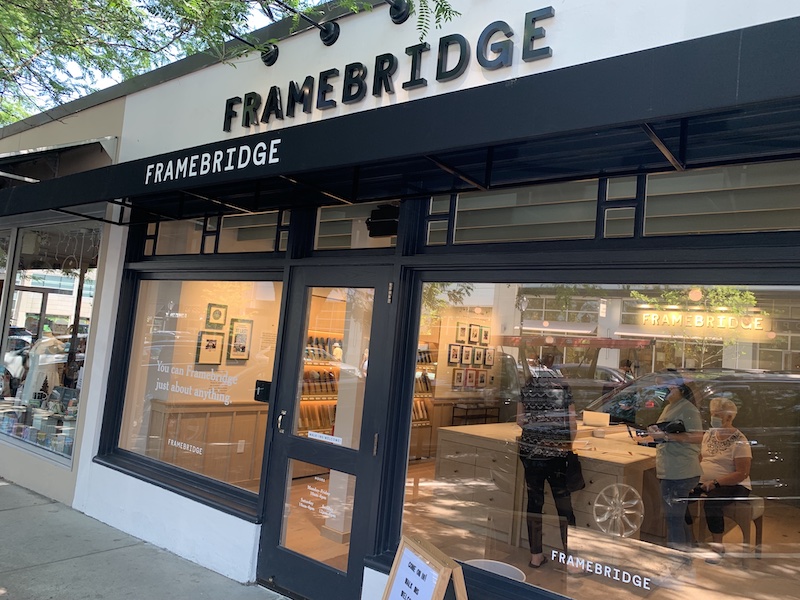

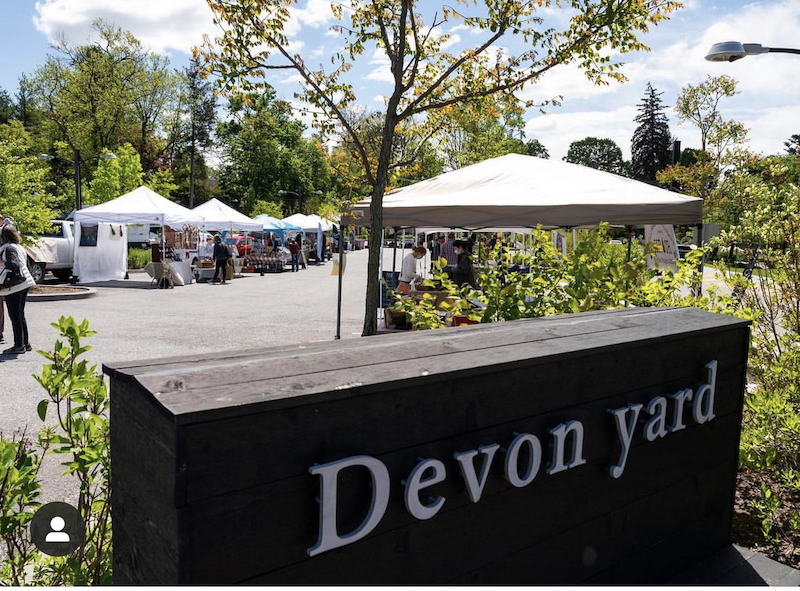







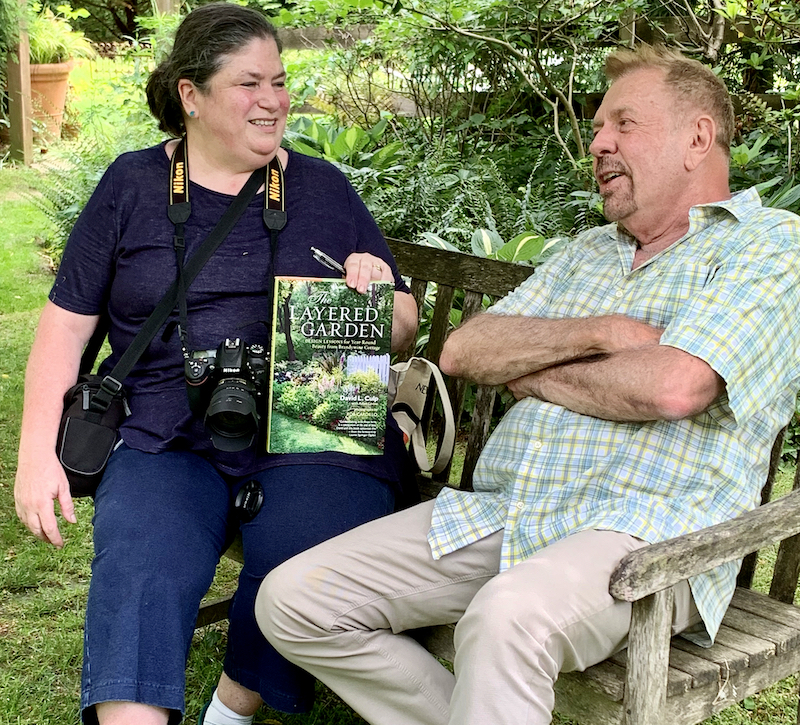

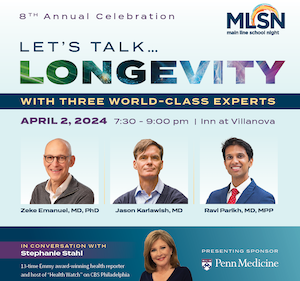
An interesting plethora of news and stories. Well done!
Why, thank you for taking the time to say so!
Thanks for the heads up on Devon Yard Farmer’s Market. Had no idea it was there!
Yes, one of our underknown gems!
Same here! Now we know what to do on Wednesdays!